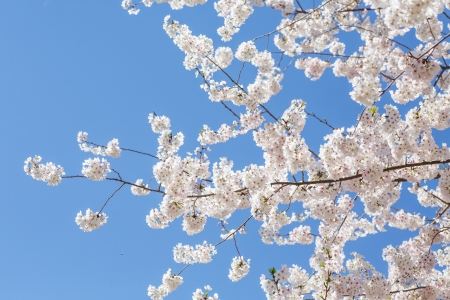Understanding Seasonal Allergies in the UK
As spring and summer grace the British Isles, many households begin to notice a familiar pattern: sneezing fits, itchy eyes, and runny noses. These are the hallmarks of seasonal allergies, often triggered by an increase in airborne allergens such as pollen, dust mites, and mould spores. While hay fever is perhaps the best-known culprit—thanks to grass and tree pollen peaking from May through July—other irritants like indoor pet dander and household dust can also cause significant discomfort. In recent years, allergy symptoms have become more common and intense for many UK residents. This trend can be linked to several factors: climate change extending pollen seasons, increased air pollution interacting with allergens, and modern home designs that favour insulation but reduce ventilation. As British homes become more airtight to conserve energy, they inadvertently trap allergens inside, making it harder for families to escape these triggers. Understanding this evolving landscape is vital for anyone looking to cultivate a healthier and happier living environment.
2. The Principles of Feng Shui: A Practical Overview
Feng Shui, an ancient Chinese practice, is all about harmonising individuals with their surrounding environment. At its core, Feng Shui revolves around the concept of “Qi” (pronounced ‘chee’), which refers to the flow of energy through a space. For British homes dealing with seasonal allergies, understanding and applying basic Feng Shui principles can help promote better air quality, reduce allergens, and create a more uplifting atmosphere.
The philosophy of Feng Shui aligns neatly with modern ideas about health and wellbeing in the home. By focusing on decluttering, maximising natural light, and ensuring good airflow, the approach supports practical steps already recommended for allergy management. Below is a table that summarises key Feng Shui principles and how they relate to creating healthier living spaces:
| Feng Shui Principle | Application in British Homes | Allergy-Friendly Benefit |
|---|---|---|
| Clear Pathways (Uncluttered Spaces) | Keep hallways and rooms tidy; avoid blocking doors/windows | Reduces dust accumulation, improves air circulation |
| Balance of Elements (Wood, Water, Fire, Earth, Metal) | Use natural materials like wooden furniture or wool textiles | Less synthetic material means fewer potential allergens |
| Natural Light & Ventilation | Open curtains regularly; ventilate by opening windows when pollen count is low | Lowers indoor humidity, discourages mould and dust mites |
By weaving these principles into everyday home life—especially within the unique context of Britain’s seasons—residents can foster an environment that feels lighter, healthier, and more balanced. This practical application not only echoes current health advice but also offers a fresh perspective for managing the challenges of seasonal allergies within the home.

3. Air Quality at Home: British Realities
For many of us living in the UK, seasonal allergies are more than just a springtime nuisance—they’re a persistent challenge, deeply influenced by our unique climate and housing stock. British homes, especially older Victorian terraces and post-war flats, often struggle with issues like damp and mould due to high rainfall and limited ventilation. These conditions create ideal breeding grounds for allergens, compounding the discomfort for allergy sufferers. Pollen is another major culprit; hay fever season can stretch from early spring well into late summer, thanks to our varied flora and weather patterns. Unlike some countries with drier climates, Britain’s frequent rain showers don’t always wash pollen away—instead, they can cause spores and particles to linger indoors. Even simple habits like drying clothes inside or keeping windows shut for warmth can inadvertently trap allergens in our living spaces. Understanding these uniquely British air quality challenges is essential if we want to apply Feng Shui principles to foster a healthier, happier home environment. By recognising how mould, pollen, and damp exacerbate allergies typical to UK homes, we can take practical steps—like improving ventilation, managing moisture, and making thoughtful design choices—that align both with holistic living and the realities of British life.
4. Integrating Feng Shui to Minimise Allergies
When it comes to managing seasonal allergies in a British home, integrating Feng Shui principles offers practical benefits beyond aesthetic harmony. The UK’s unique climate—often damp, with fluctuating pollen levels—requires us to think strategically about our living spaces. Below, you’ll find actionable Feng Shui tips tailored for British conditions, focusing on furniture arrangement, natural ventilation, and the use of greenery for cleaner indoor air.
Furniture Placement: Encouraging Air Flow
In Feng Shui, cluttered or poorly arranged furniture can restrict the flow of Qi (energy) and trap allergens such as dust and pollen. In a British context, bulky sofas near radiators or windows can block heat circulation and fresh air. Instead, position furniture to allow easy movement and maximise cross-ventilation. This not only supports positive energy flow but also helps reduce stagnant air where allergens settle.
Natural Ventilation: Making the Most of British Weather
Given the UKs variable weather, balancing ventilation without inviting in excess pollen is key. On low-pollen days—typically after rain—open windows on opposite sides of your home to create a gentle through-draught. Avoid opening windows during peak pollen times (early morning or windy afternoons). Installing trickle vents and using extractor fans in kitchens and bathrooms further improves air quality by reducing moisture and mould risk.
Greenery Indoors: Choosing Allergy-Friendly Plants
While plants are central in Feng Shui for boosting vitality, not all are suitable for those with allergies. Opt for British-friendly, low-pollen plants that also purify air, such as:
| Plant Name | Feng Shui Benefit | Allergy Consideration |
|---|---|---|
| Spider Plant | Cleanses air; promotes growth energy | Low pollen; non-toxic |
| Bamboo Palm | Symbolises resilience; humidifies air | Low allergen; easy care |
| Aloe Vera | Heals & soothes; absorbs toxins | No airborne pollen; medicinal use |
Avoid highly fragrant flowers or those known to trigger hay fever, like lilies or chrysanthemums.
Tidy Home, Healthy Qi: Regular Cleaning Routines
An often-overlooked aspect of Feng Shui is routine cleaning—a must in Britain’s damp climate. Dust surfaces weekly, vacuum carpets with HEPA filters, and wash soft furnishings regularly to prevent dust mites and mould spores from accumulating. These habits align with Feng Shui’s emphasis on clarity and freshness in the home environment.
A Balanced Approach for Happier Living
By combining these targeted Feng Shui strategies with allergy awareness specific to the UK, you create a living space that is not only harmonious but also healthier—supporting both wellbeing and peace of mind throughout every season.
5. Seasonal Adjustments for a Healthier Home
Adapting your home to the rhythm of the British seasons is essential for managing allergies and promoting harmony, especially when drawing inspiration from Feng Shui principles. Each season brings its unique set of challenges and opportunities, from high pollen counts in spring to increased dust indoors during winter. By syncing your routines with the changing weather, you can help keep allergens at bay while cultivating positive energy throughout your space.
Spring: The Big Clean and Fresh Start
In true British fashion, spring is synonymous with the annual deep clean. This tradition aligns perfectly with Feng Shui’s emphasis on clearing stagnant energy and letting fresh air circulate. Open windows on milder days to let in qi (energy) and ventilate any lingering winter dampness. Focus on dusting skirting boards, washing curtains, and swapping out heavy winter bedding for lighter options – all steps that reduce dust mites and pollen accumulation.
Summer: Ventilation and Energy Flow
Summer often brings hay fever woes as pollen counts rise. Use Feng Shui to maintain clear pathways for both air and energy by keeping hallways uncluttered and doors open where possible. Invest in good doormats at entrances to trap outdoor allergens before they spread inside, a very British approach considering our love for muddy countryside walks. Consider adding plants like English ivy or peace lilies that are known for their air-purifying qualities, but be mindful of potential allergenic reactions.
Autumn: Decluttering for Cosiness
As the leaves turn, it’s time for an autumnal declutter. Remove items that no longer serve you or have accumulated over summer holidays. In Feng Shui terms, this creates space for new opportunities and prevents energy blockages. Vacuum carpets thoroughly after outdoor excursions to remove mould spores and leaf debris common in the UK’s damp autumn weather.
Winter: Insulation and Calm
With windows closed against the chill, focus on maintaining air quality indoors. Regularly clean radiators, vents, and soft furnishings to prevent dust build-up. Incorporate warm colours and textures into your décor to enhance comfort and balance according to Feng Shui’s Five Elements theory – think wool throws in earthy tones or wooden accents that evoke stability during darker months.
The Year-Round Routine
The key is consistency across all seasons. By aligning household chores with seasonal shifts – a practice deeply rooted in both British culture and Feng Shui wisdom – you’ll create a home environment that supports wellbeing, reduces allergy triggers, and remains a welcoming haven whatever the weather.
6. Tailoring Solutions for Different British Homes
Every British home has its own personality and quirks, whether you live in a classic Victorian terrace, a semi-detached with a small garden, a modern detached house, or a purpose-built flat. The good news is that both seasonal allergy management and Feng Shui principles can be thoughtfully adapted to suit these varied living spaces, supporting healthier and happier households across the UK.
Terraced Houses
Terraces often have limited airflow and smaller gardens. Prioritise natural ventilation by opening windows on opposite sides when pollen counts are low, and use air purifiers to maintain indoor air quality. Feng Shui adjustments—like keeping entranceways clear and using mirrors strategically—can help circulate positive energy even in narrow spaces. Opt for easy-to-clean wooden floors instead of carpets to reduce dust and allergens.
Semi-Detached Homes
Semi-detached homes typically benefit from more light and space. Place plants like spider plants or peace lilies near windows (but away from pollen-producing outdoor gardens) to purify the air and bring in a touch of nature as recommended by Feng Shui. Use breathable cotton curtains that can be washed regularly to keep allergens at bay, and arrange furniture to maximise openness and a sense of flow between rooms.
Detached Properties
With greater freedom in layout and usually larger gardens, detached homes can embrace both allergy prevention and harmonious design. Consider creating an entryway “buffer zone” where shoes and coats are left to prevent bringing pollen indoors—a practice that aligns with both practical allergy advice and Feng Shui’s focus on keeping pathways clear. Regularly clean outdoor seating areas to minimise the transfer of pollen inside, and use water features carefully to promote calm without increasing indoor dampness.
Purpose-Built Flats
Flats may face challenges like less outdoor space or shared corridors. Invest in compact air purifiers, especially if you can’t always open windows due to traffic or neighbours. Embrace vertical storage solutions to keep clutter down (a core Feng Shui principle) and select hypoallergenic materials for soft furnishings. If balcony access is available, keep it tidy with low-pollen plants such as lavender or rosemary—these not only look lovely but also contribute to better energy flow according to traditional Feng Shui teachings.
Final Thoughts
No matter what type of British home you have, blending sensible allergy precautions with simple Feng Shui adaptations will help create cleaner air, calmer energy, and a more enjoyable living environment year-round. Think of it as a mindful experiment: try small changes, observe what works best in your unique space, and adjust as needed—the result will be a home that feels both physically healthier and emotionally uplifting.


